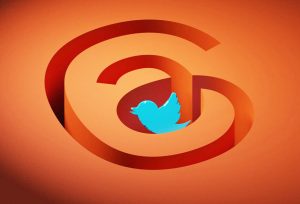Meta’s new social platform, Threads, is off to an impressive start, but can it continue its initial success against Twitter? Wharton’s Pinar Yildirim weighs in.
A well-executed strategy helped launch Meta’s Threads into the stratosphere, surpassing 100 million users in its first week and making it the fastest-growing online platform in history.
But parent company Meta will need a solid long-term plan if it wants to monetize its newest social media site and permanently steal users away from Twitter, Wharton marketing and economics professor Pinar Yildirim said.

“I don’t think it was a big surprise that there would be more competition coming into this particular space,” Yildirim told Wharton Business Daily on SiriusXM. “Advertisers were uncertain and hesitating to advertise on Twitter, which leaves some money on the table. More importantly, users of Twitter were also looking for another platform to migrate to.”
How Meta’s Threads Leveraged Instagram
Meta is capitalizing on its existing success with Instagram by making users log into Threads through their Instagram accounts. That’s a smart move, according to Yildirim, because it enables Meta to leverage all the data it has already captured from its Instagram audience, which tends to be younger and more engaged than the Facebook crowd.
“That’s a really advantageous point in terms of kickstarting the experience on another platform,” she said. “If you and I tomorrow decided that we wanted to go into business and become a competitor to Twitter, and we wanted to start from scratch without any existing user base, without any knowledge of these users in terms of data and the social network topography, we would have a very hard time reaching 100 million users in a number of days.”
Yildirim thinks the decision to pull new Threads users through Instagram was also deliberate; the similar design and interface make it comfortable for users who don’t have to learn anything new.
Despite the early success, sustaining the recording-breaking number of Threads users will take a lot more work. The professor said Meta will need to come up with a strategy to monetize the new platform through advertising. Meta is already good at creating targeted advertising on Facebook and Instagram, so it’s highly likely they will employ the same approach with Threads to make it profitable, she said.
Musk vs. Zuckerberg: Twitter’s Response
Meanwhile, Musk hasn’t taken the launch of Threads lightly. He’s threatened legal action over the alleged theft of intellectual property, criticized Zuckerberg for monopolistic behavior, and blasted the platform for its approach, tweeting, “It is infinitely preferable to be attacked by strangers on Twitter, than indulge in the false happiness of hide-the-pain Instagram.”
Yildirim said it does appear that Threads is trying to distance itself from the antagonistic style that got Twitter in so much trouble with critics over content moderation, polarization, propaganda, and misinformation. For now, Threads is using its algorithms to try to keep away from news and politics, instead focusing on the type of lighter content usually seen on Instagram. But she’s not convinced that Threads can avoid politics altogether, especially in an upcoming election year.
“This has been one of the big headaches for Twitter for a long time,” she said.
Yildirim also doesn’t discount the effect that Zuckerberg and Musk will have on their ability to lure consumers toward — or away from — each product. There are many lines of business in which the CEOs are not household names, but that’s not the case with the two billionaires with outsized personalities who have made headlines for trash-talking over a potential cage match.
“I think this is an experimental period of trial and error, and doing it so publicly might be an important part of [Twitter’s] problems. But given how strong the personalities are here, maybe that is inevitable,” she said.








